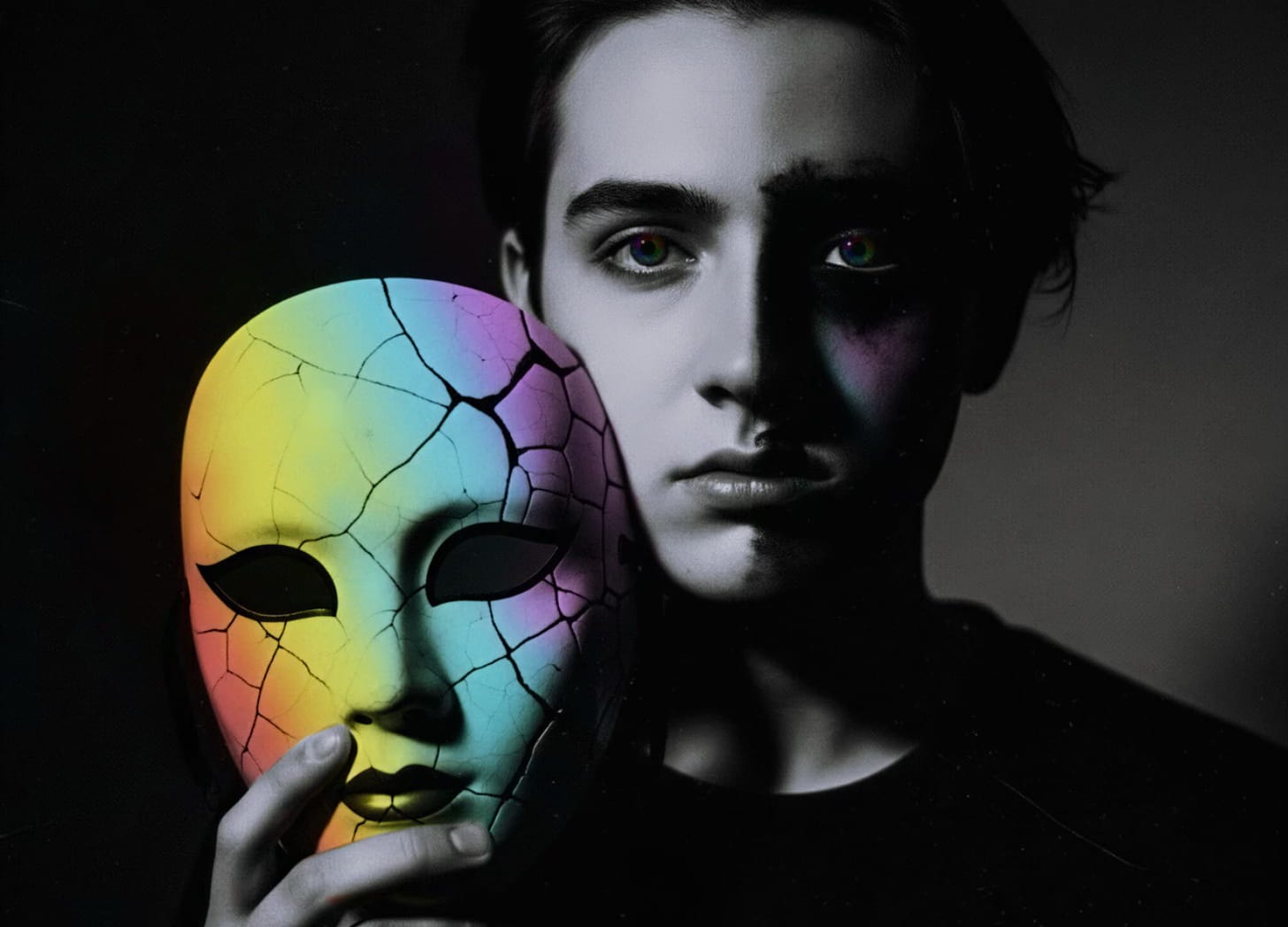Are You “Gay Enough”? The Hidden Shame of Queer Imposter Syndrome
The voice that whispers "you're not really gay" might be the cruelest conversion therapy of all
It was that hour of the night when defenses crumble and truth bleeds through: “I’ve been with my partner for three years, but I still feel like I’m pretending to be gay. Like any moment someone’s going to call me out for not being gay enough.”
I stared at my screen, remembering my own 2:47 AMs. The nights I'd scroll through photos from Pride, searching my own face for evidence of belonging. The mornings I'd wake beside someone I loved and feel like a tourist in my own life.
This wasn't just one late-night confession. It was the echo of hundreds of sessions where clients described the same haunting: a voice inside that constantly audits their identity, demanding receipts they can never quite produce.
We have a name for the external forces that try to convince us we're straight. But what about the internalized examiner that insists we're failing at being gay?
The Anatomy of Gay Imposter Syndrome
Traditional imposter syndrome whispers that you're not smart enough, accomplished enough, deserving enough. Gay imposter syndrome cuts deeper. It questions whether you even exist.
"But I dated women before," clients tell me, as if past relationships were crimes that revoke their membership card.
"I don't fit the stereotypes," others confess, as though being gay requires a specific uniform.
"I came out too late," they whisper, as if authenticity had an expiration date.
The imposter voice doesn't just doubt your achievements. It interrogates your desires, cross-examines your attractions, and finds your identity guilty of insufficient evidence. It's the prosecuting attorney that never rests, building cases from every moment you don't feel "gay enough."
💭 Reflection Moment
What specific phrases does your inner imposter use? Does it sound like someone you know, or is it a voice you've created entirely on your own?
Last month, a client—let's call him Marcus—described how his imposter voice had evolved over the years. "In my twenties, it said I wasn't gay because I didn't know about the right music or movies. In my thirties, it said I wasn't gay because I wanted kids. Now in my forties, it says I'm not gay enough because I live in the suburbs with my husband and drive a minivan."
The goalposts never stop moving because the imposter's job isn't to assess truth. It’s to maintain doubt.
When Protection Becomes Prison
Here's what most people don't understand about gay imposter syndrome: it often begins as protection. When the world tells you that being gay is wrong, dangerous, or impossible, part of your mind might try to shield you by denying it's true.
That voice saying "you're not really gay"? It might have started as a survival mechanism, trying to keep you safe in hostile environments. The tragedy is when that protective voice outlives its purpose, continuing to patrol the borders of your identity long after you've found safety.
I see this pattern constantly in my practice. The protective doubt that helped someone survive their teens becomes the limiting belief that constrains their thirties. The mental shield transforms into a cage.



